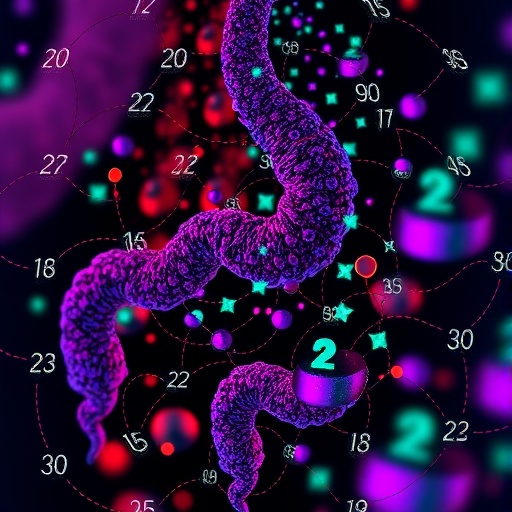In recent years, the gut microbiome has been heralded by some as a potential key to understanding autism spectrum disorder (ASD), a complex neurodevelopmental condition characterized by impaired social interaction and communication, alongside restrictive and repetitive behaviors. However, a critical opinion piece published in the prestigious scientific journal Neuron on November 13, 2025, systematically dismantles the notion that the gut microbiome plays a causative role in autism. This article, authored by Kevin Mitchell and colleagues, argues that previous studies linking the microbiome to autism suffer from significant conceptual and methodological shortcomings, calling into question the validity of the entire hypothesis.
The impetus for investigating the gut microbiome in relation to autism stems from observations that many autistic individuals experience gastrointestinal symptoms. Such associations have led to speculation that alterations in the gut microbial community might influence neural development or behavior, given the emerging evidence of bidirectional communication along the gut-brain axis. Yet, the authors emphasize that this association does not imply causation, and they warn against conflating correlation with causative mechanisms without rigorous scientific evidence.
A major critique outlined in the piece concerns the small sample sizes that have characterized many microbiome-autism studies. These studies typically analyzed groups ranging from seven to 43 participants, far below the sample sizes recommended by contemporary statistical standards that demand hundreds or thousands of participants to ensure adequate power and reproducibility. Moreover, these studies employed diverse and often incompatible methods to profile the gut microbiome, further complicating cross-study comparisons and meta-analyses.
In many cases, reported differences in microbial diversity or composition between autistic and neurotypical groups are inconsistent and contradictory. For example, some studies identified reduced microbial diversity in autistic individuals, while others reported the opposite. When key confounding variables like diet, medication, and familial environment were controlled—such as by comparing autistic children with their neurotypical siblings—these microbial disparities tended to disappear, suggesting that extrinsic factors rather than autism per se drive microbiome variation.
The authors also raise the possibility of reverse causality. That is, autism-associated behaviors may influence dietary preferences and gastrointestinal function, which in turn affect the microbiome composition. This perspective underscores the challenge of disentangling cause from effect in complex human conditions and stresses the importance of longitudinal and mechanistic studies.
Animal models have also been employed to probe this hypothesis, with mouse models genetically or environmentally manipulated to exhibit behaviors described as “autistic-like.” Despite their popularity, the paper points out that such models have numerous limitations. These include fundamental species differences in behavior and neurobiology and methodological issues that undermine the relevance of these findings to human autism.
Complementing observational studies, several clinical trials have tested interventions targeting the microbiome, such as fecal microbiota transplantation and probiotics, with hopes of alleviating autism symptoms. However, the opinion article highlights that many of these trials suffer from a lack of randomization, inadequate controls, insufficient sample sizes, and inappropriate statistical analyses. Well-controlled studies that meet rigorous scientific standards generally fail to demonstrate significant therapeutic benefits.
As autism is widely recognized as having a strong genetic basis, the authors advocate for refocusing scientific inquiry on genetic and neurobiological mechanisms underlying the disorder. They argue that continuing to invest substantial time and funding in microbiome research related to autism, without addressing the methodological flaws identified, risks diverting resources from more promising areas.
Nonetheless, the authors acknowledge that the microbiome field is rapidly evolving, with immense complexity in microbial ecology and host interactions that are only beginning to be understood. They suggest that if research in this area continues, it must incorporate far larger sample sizes, standardized methodological approaches, rigorous statistical analysis, and well-designed clinical trials to produce reliable and meaningful findings.
This critical appraisal serves as a cautionary tale underscoring the necessity of scientific rigor and skepticism in biomedical research. The allure of intriguing correlations must not overshadow the importance of robust experimental design and reproducibility, particularly when investigating multifactorial neurodevelopmental disorders such as autism.
In conclusion, the new consensus articulated by Mitchell and colleagues in Neuron signals a turning point. Their comprehensive evaluation makes it clear that the current evidence does not support a causal role for the gut microbiome in autism, and that claims to the contrary rest on shaky foundations. For the field to progress, researchers must embrace more stringent standards or reconsider the emphasis placed on microbiome-based explanations for autism.
This emerging perspective could reshape research priorities, funding decisions, and the clinical approaches offered to individuals with autism and their families. While the gut microbiome remains a fascinating component of human biology with potential implications for health and disease, its proposed involvement in autism remains unsubstantiated by high-quality evidence. The challenge moving forward will be to delineate which aspects of microbiome science offer genuine clinical promise and which hypotheses require critical reassessment.
Subject of Research: Not applicable
Article Title: Conceptual and methodological flaws undermine claims of a link between the gut microbiome and autism
News Publication Date: 13-Nov-2025
Web References:
http://dx.doi.org/10.1016/j.neuron.2025.10.006
http://www.cell.com/neuron
References:
Mitchell KJ, Bishop DV, Dahly D. Conceptual and methodological flaws undermine claims of a link between the gut microbiome and autism. Neuron. 2025 Nov 13; DOI:10.1016/j.neuron.2025.10.006.
Keywords: Autism, Gut microbiota, Scientific integrity, Research methods




